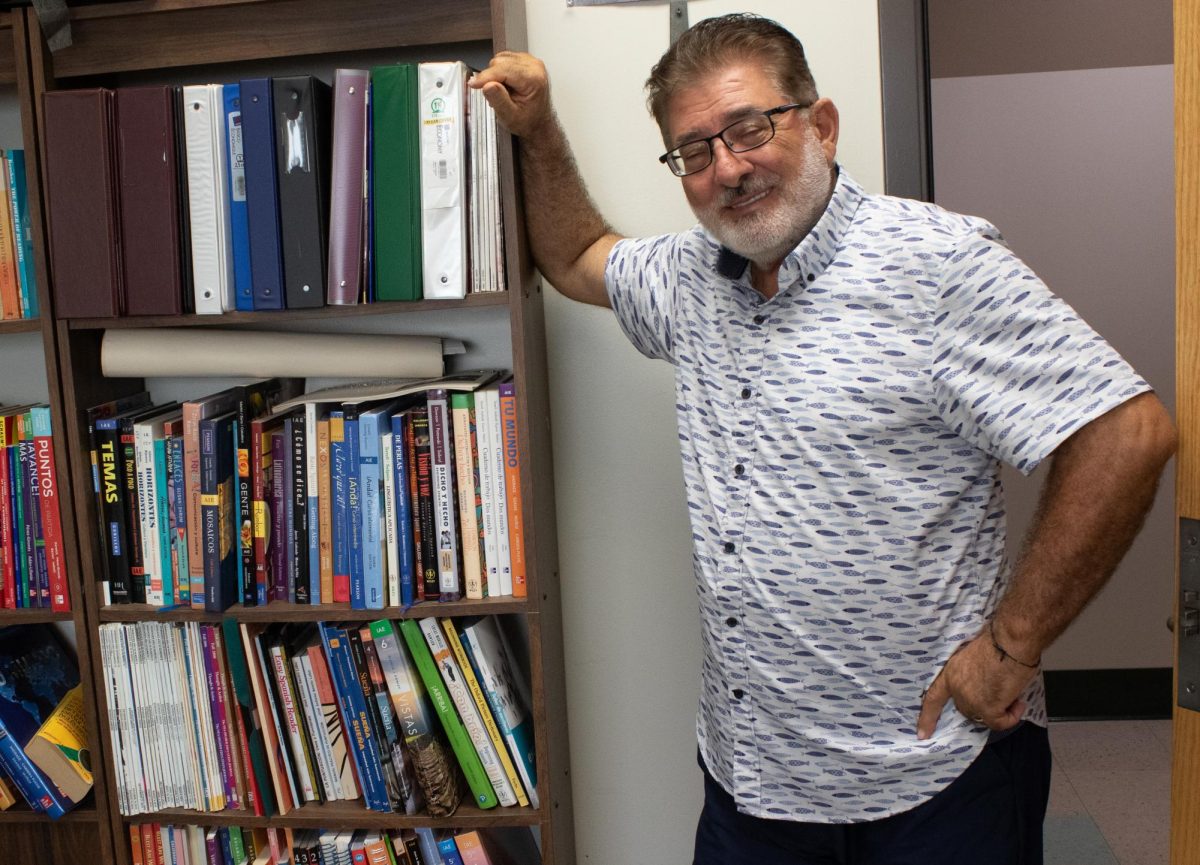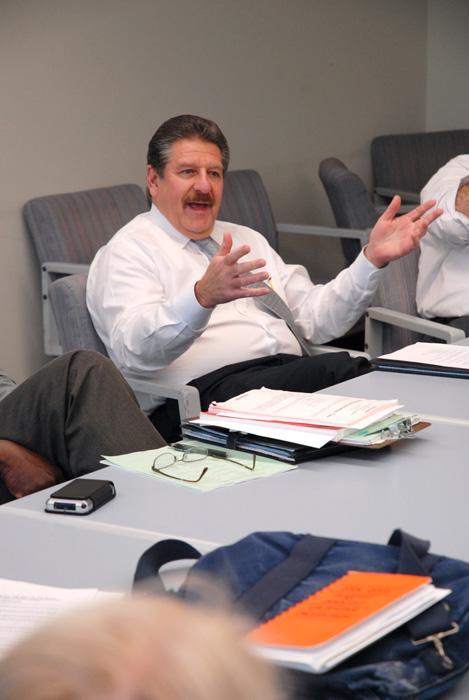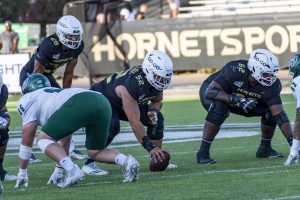Faculty to evaluate Gonzalez’s work
President Alexander Gonzalez addresses Sacramento State budget concerns raised by faculty senate members at the senate meeting on April 3 in Sacramento Hall. :
April 26, 2007
With faith in the campus leadership at a low, the Faculty Senate voted in favor of holding a no-confidence referendum, which would allow-all Sacramento State faculty members to vote on how confident they are in President Alexander Gonzalez’s ability to represent the university.
The Faculty Senate voted 36-7 with one abstention in favor of the measure.
Faculty Senate Chair Michael Fitzgerald said the decision, which was handed down at Thursday’s meeting, came after months of fact-finding by the Budget Task Force about the deficit and other issues.
While Gonzalez was not available for comment, Associate Vice President of Public Affairs Frank Whitlatch said he expects the president to respond to the referendum sometime this week. The decision also came two days after Gonzalez met with-the senate’s executive committee to discuss the base budget for Academic Affairs, as well as the faculty budget.
Fitzgerald said the idea of holding a no-confidence referendum was bounced around last fall. “However, the faculty agreed that there needed to be some fact-finding about the budget deficit first,” Fitzgerald said.
Fitzgerald, along with a number of other faculty members, believes the referendum will go against Gonzalez. He said that the referendum will, more than likely, be placed in front of all instructors in the next week or two. He said faculty members will then have roughly two weeks to turn in their secret ballots. “The major issue is his handling of university finances,” Fitzgerald said. “Specifically, his spending of additional monies to hire new administrators?while reducing the budget used to offer classes.”
Other issues mentioned in the referendum include outrage over Gonzalez’s placement of the interests of management, publicity and cultivation of community favor above the needs of the university, a lack of confidence in his leadership and willingness to preserve the quality of all academic programs and faculty dismay over his efforts to promote the university through means that conflict with its core values.
Associate Professor of Teacher Education Janet Hecsh – who said that she abstained from voting for several reasons, including the fact she had not had an opportunity to get feedback from her department, said she believes that few, if any faculty, will publicly oppose the referendum.
“I have no idea (what the outcome will be),” Hecsh said. “It will depend on voter turnout and the sort of campaigning that takes place. However, I would speculate that those who are the most stirred up will vote the most.”
Fitzgerald said that while the chances of the referendum going against Gonzalez seem good, he does believe that there are ways Gonzalez could sway voters.
“If the president made a compelling case for why he has shifted funds and why it might be in the best interest of the university, he could sway the vote,” Fitzgerald said.
Whitlatch said he expects both sides to handle the referendum in a fair manner.
“I expect the president and the administration will respond with facts?then it will be up to individual faculty members to make an informed vote,” Whitlatch said.
Fitzgerald said that the goal of the referendum is not to force Gonzalez from his position, but to inform him “in the strongest terms possible” that faculty members want the academics programs and classes to be his first priorities. He said his office will begin taking statements, supporting and critiquing Gonzalez’s performance, immediately.
A spokesperson for the California State University system would not comment because the referendum is a university issue.
Ashley Evans can be reached at [email protected]
























































































































